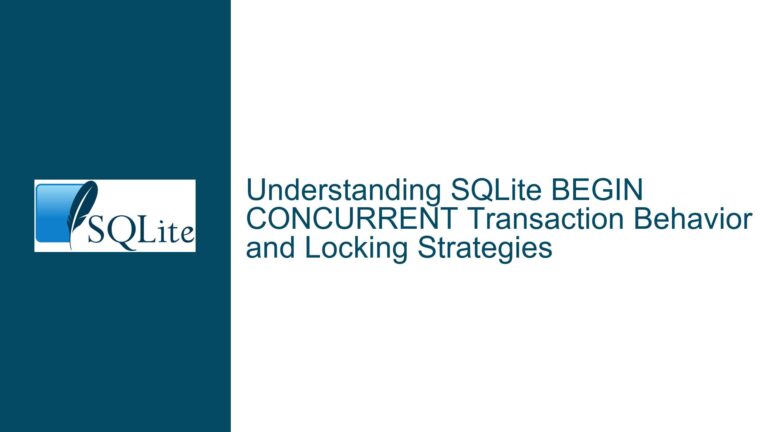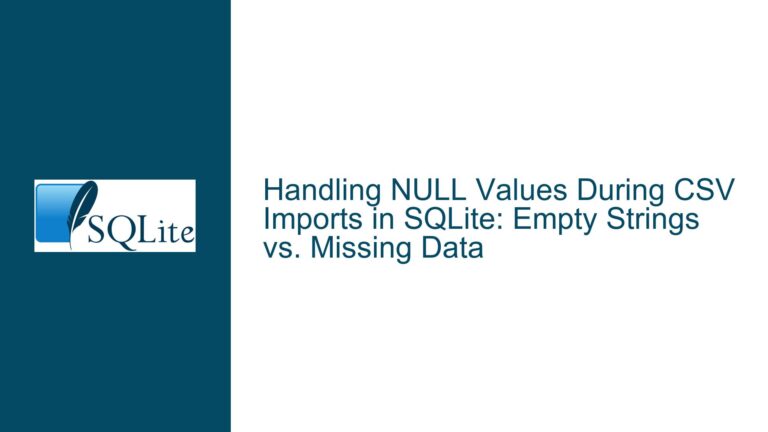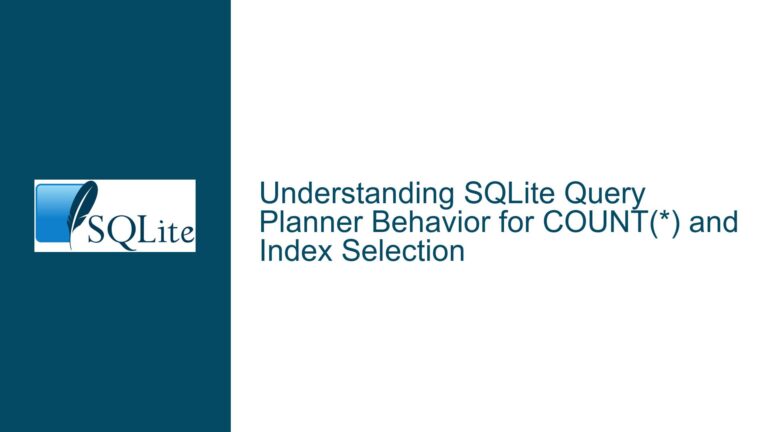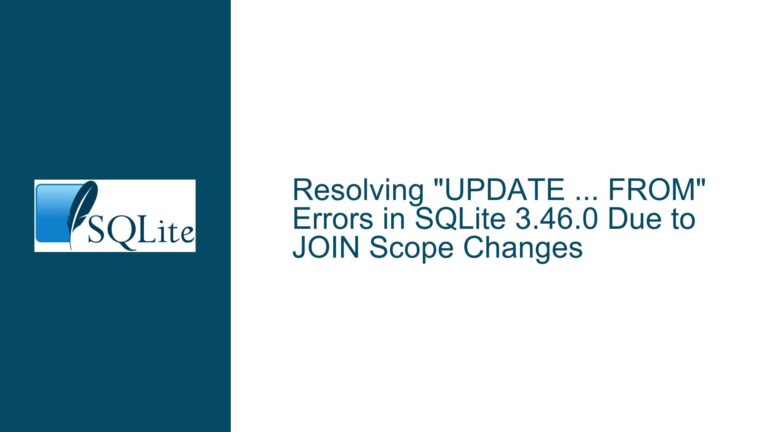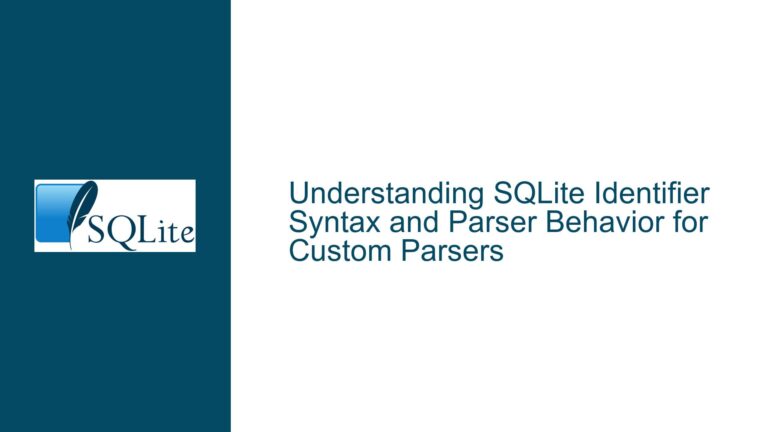SQLite BEGIN CONCURRENT Transaction Behavior and Locking Strategies
Transaction Start Timing and Snapshot Visibility in SQLite SQLite transactions operate under distinct modes that govern their interaction with the database engine’s locking mechanisms and snapshot visibility. The core challenge arises from the interplay between three critical concepts: transaction initiation timing, lock acquisition strategies, and snapshot isolation. A DEFERRED transaction delays both lock acquisition and…
